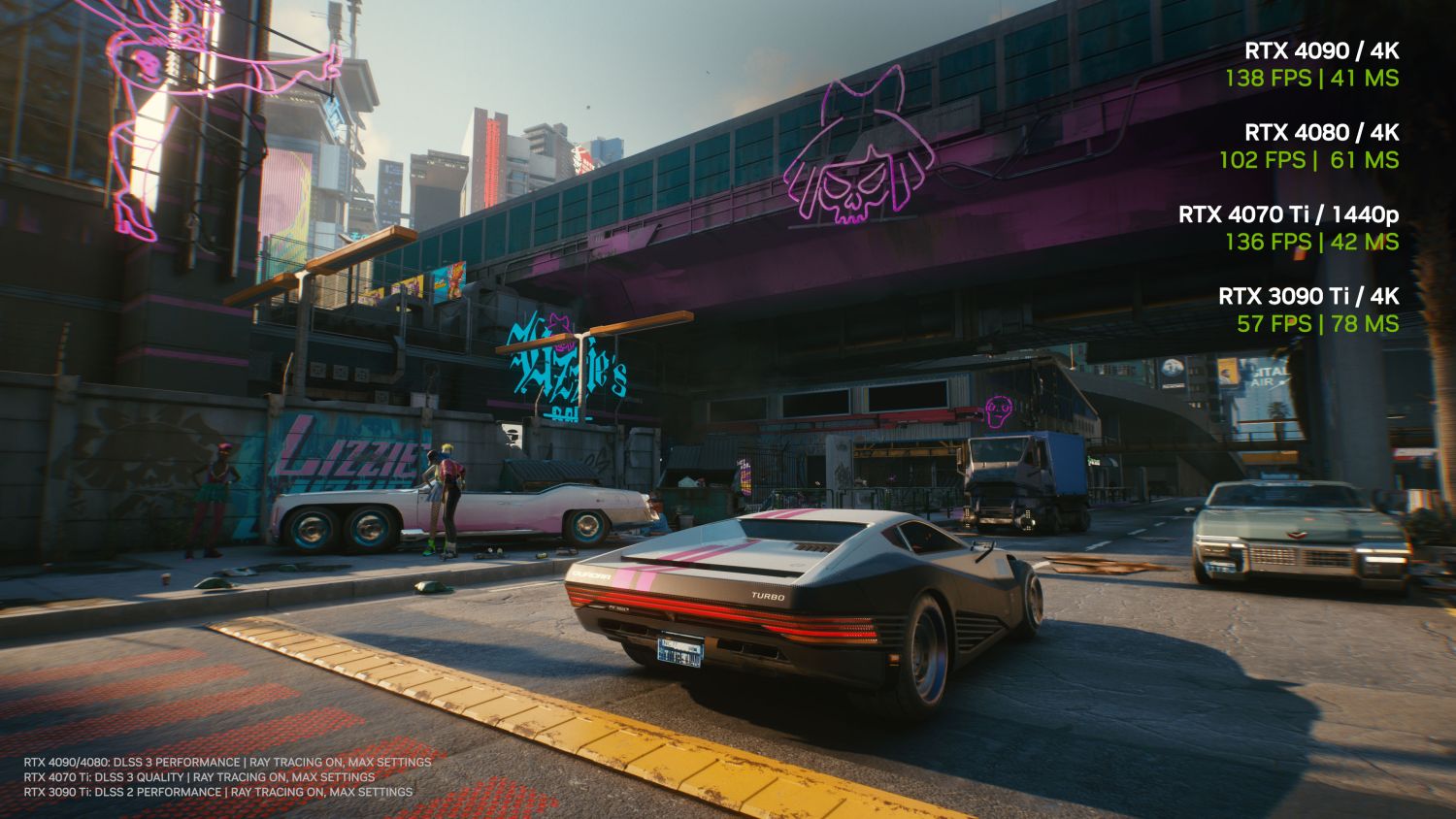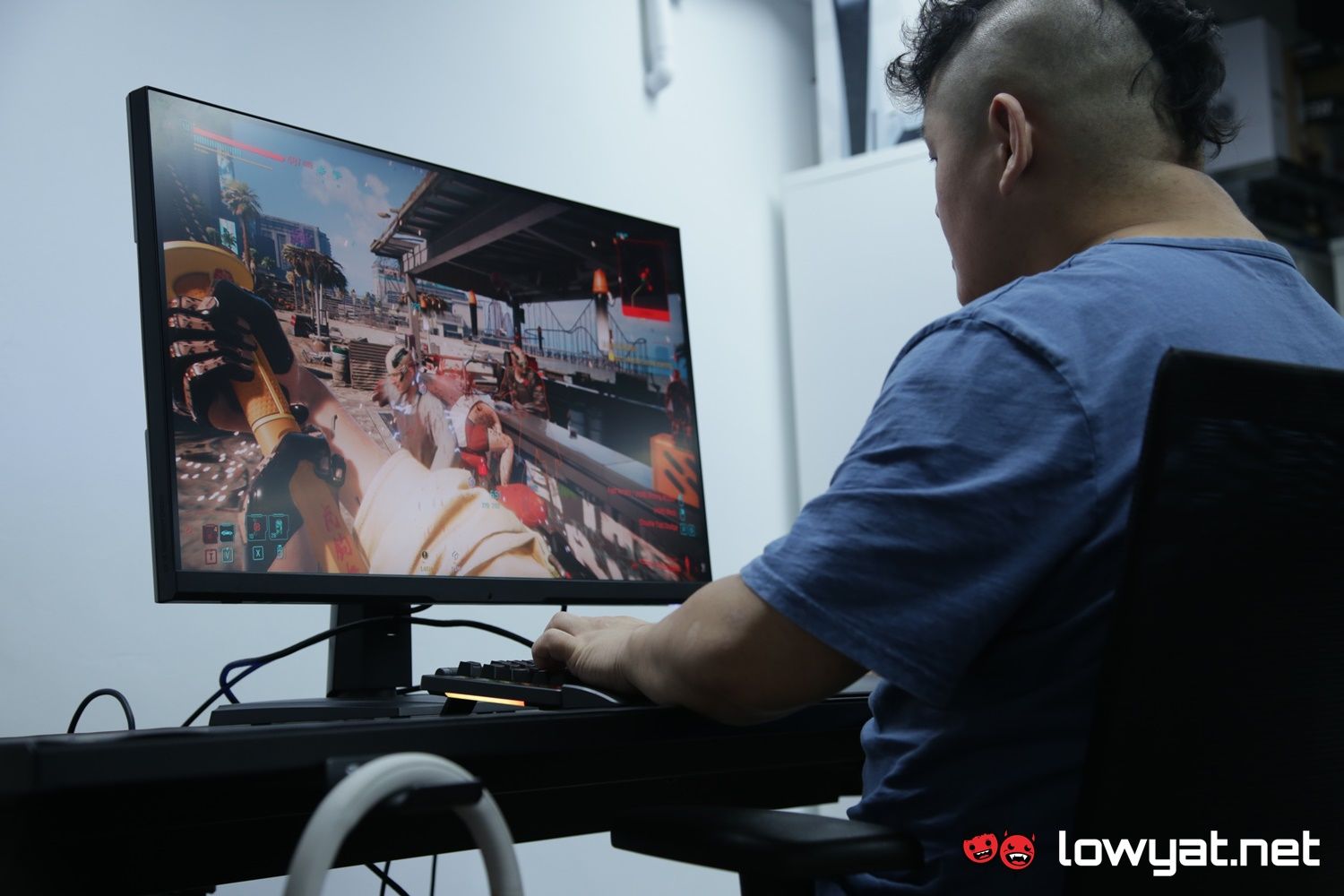NVIDIA and Polish video game developer and studio, CD Projekt Red (CDPR), are set to amaze attendees at GDC 2023 with its development on path-tracing technology. Specifically, the new real-time rendering process is expected to be known as RT: Overdrive, once it is more stable and ready for launch within Cyberpunk 2077.
As per CDPR’s fluff for its session:
“CDPR’s Cyberpunk 2077 is technically one of the most challenging games on the market thanks to its massive world scale and visual variety. Its neon-illuminated environments and vast Night City vistas are already pushing the envelope of what’s currently possible in real-time graphics. RT: Overdrive mode aims to take it to the next level by bringing RTX path-tracing into the mix. We all are well too familiar with the limitations of the current real-time direct and indirect lighting algorithms. Things like non-shadow casting lights with non-physically based range, low-resolution indirect light multiplied by screen-space ambient occlusion, or screen-space reflections are still widely used. While delivering satisfying performance on lower-end hardware, they limit maximum image quality and reduce content creator flexibility.
RTX path-tracing aims to minimize constraints put on the content creators by delivering pixel-perfect soft shadows and indirect light contribution in fully dynamic environments from all the lights – be it an analytical local light, emissive surface, skylight, you name it.”

Just so we’re clear, path-tracing isn’t technically a new or groundbreaking technology – the tech is just one of two popular methods in which game developers use, when they wish to simulate the behaviour of light within a virtual environment. With ray-tracing, it traces the path of light rays and their interaction with different objects; this processing method requires a lot of graphical power but the end results are images and environments with very accurate reflections, refractions, and shadows.
Path-tracing, on the other hand, is a randomly computed process, involving paths of lights that are sampled within an environment. This method is less taxing in terms of processing power, but the trade-off is usually noisy images that, as Videocardz explains, require many iterations to be sample before a final image is produced. Little wonder then, why this technology isn’t typically used in video game development.
CDPR and NVIDIA’s technology demonstration for path-tracing will be showcased on 22 March. This isn’t a public showcase for gamers, so it is likely that the general masses will only be given a glimpse of it, probably at a much later date and just before the Polish studio officially launches it for Cyberpunk 2077.
(Source: GDC, Videocardz)
Follow us on Instagram, Facebook, Twitter or Telegram for more updates and breaking news.




